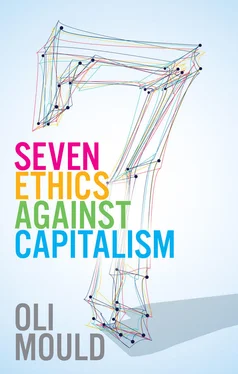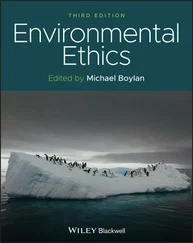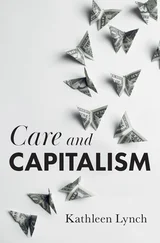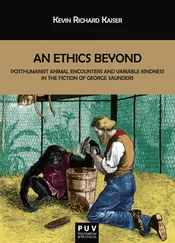More recently, the concept of the commons has been used to articulate an international common resource, most notably by the economist Elinor Ostrom, who published Governing the Commons in 1990. 15She articulated the already-existing ways in which indigenous communities were effectively and efficiently managing commonly shared resources such as water, forests and grazing land. She was responding to the so-called ‘tragedy of the commons’, put forward by Garrett Hardin in 1968, who argued that the common use of a resource would lead to its ultimate depletion because of the inherent self-interest of certain individuals. 16For Hardin, private ownership was the only way to secure the future of that resource. But Ostrom’s research saw that many people were rejecting this idea, and she put forward a set of principles that, if adhered to, can sustain a common resource and not lead to its ultimate depletion. She won the Nobel Prize in Economics in 2009, and many of her ideas are now implemented by the World Bank and their like to govern precious natural resources such as the Amazon rainforest. However, such institutionalization of Ostrom’s principles has led to privatization by another route. Silvia Federici has argued that the World Bank (and other supra-national Bretton Woods institutions such as the United Nations and the World Trade Organization) have commandeered important natural resources and merely put them under the control of states (which have been largely hollowed out by corporate interests). And under the guise of ‘protecting biodiversity’, access is limited to certain privileged companies, dignitaries, tourists and investors, all while indigenous communities continue to be expelled.
Global material resources are one thing, common global cultures and ideologies are another. There is very little or no cost of reproduction to a commonly consumed radio broadcast, film, creative idea or other cultural product; once it is made, it can be consumed without cost again and again by more and more people, potentially ad infinitum (unlike food or energy). Political theorists Hardt and Negri argue that the commons, enacted by an internationalist ‘multitude’ of people resistive to globalized capitalism, can also be ‘the languages we create, the social practices we establish, [and] the modes of sociality that define our relationships’. 17Yet even this more Heraclitian view of the commons is being enclosed by contemporary techniques of capitalist accumulation. Intellectual property rights (and the aggressive legal defence thereof), the hyper-individualization of everyday life by personal technologies and social media, and the quantification of everything (so as to be more amenable to markets) are just some of the processes that are enclosing ‘common’ shared global socio-cultural experiences. Cultural artistic forms such as music, film and TV that have been collectively experienced and enjoyed are now being deliberately produced to appeal to algorithmically created playlists, accessible on personalized media rather than speaking to social issues more broadly. Marginalized collective (sub) cultures are being appropriated for commercial gain. The very relationships we have with our friends and family are being filtered through technological interfaces that optimize advertising revenue. All this stifles any sense of a common collective culture as an alternative to a digital, individually tailored and highly commercial form of capitalism.
So all of these articulations of the commons 18– a spiritual and philosophical collective humanity, a commonwealth of land, a political resistance of radical equality, an economic rationale and a cultural collective – are vital to understanding what it is that we create by simply being together. But it is the interplay between the common resource that is created and the community it creates and sustains that is the cornerstone of any further conceptualization of the commons.
Yet today, as we reel in the wake of a deadly coronavirus and attempt to learn lessons as to how to survive future pandemics better, as well as continuing to face climate catastrophe, realizing the commons on a planetary scale is more crucial than ever. In building the commons as a dialectic between community and a common resource, the recognition that the spiritual, land-based, political, institutional and economic commons that we create are extensions of the planet we inhabit is vital.
The mixing of the planet’s resources with our labour for millennia has created a world that we cannot extricate ourselves from. And as we have depleted those resources to critical levels, so too have we depleted ourselves. Capitalism, particularly the neoliberal-soaked versions of it that have produced a re-emergence of governmental fascism, 19mental health epidemics, 20violent borders 21and a chronic inability to deal with pandemics, is itself a pathogenic symptom of our disconnection with the world. The more we drive an ideological wedge between who we are as a species and what the planet is as a living resource, the more damaging capitalism has become.
Adding the prefix ‘planetary’ to ‘the commons’ augments the conceptualization of the commons as a community–resource dialectic in two related ways. First, it extends the co-creation of both the commons and community to include the planetary resources that we have been intermingling with ever since we began using tools as a species. The land, subterranean resources, forests, fauna and flora, the atmosphere, our bodies and near space: the materiality of the planet (and beyond) is a complex mingling of things and people being created, destroyed and recreated continually. But more than that, the intangible parts of our collective life – culture, society, economies, communities – are products of how we have used the material world around us. Even the ‘virtual’ commons of the internet, globalized culture and the zeitgeist itself uses materials to sustain itself; the cables, servers, smart devices, geostationary satellites and raw materials that they are made from are just as vital to the creation of the digital commons as the creative and cultural content that populates it.
Furthermore, a planetary mode of organization recognizes our material and psychological intimacy with the planet as Gaia . 22As the philosopher Bruno Latour has argued, we need to ‘rematerialize our belonging to the world’. 23Within this process there is the necessity to resist totalizing narratives that reduce the heterogeneity of the world’s population into a single homogeneous entity. As Latour (among others) has continually stressed, the nature/culture divide is a false one, and attempts by culture to curb and control nature are at the root of capitalistinduced climate catastrophe. A planetary commons rejects this divide and calls for a ‘reterrestrializing’ of our existence in the world. 24
Second and relatedly, in their conceptualization of the ‘planetary turn’, the scholars Amy Elias and Christian Moraru have argued that globalization is a totalizing and homogenizing force, one that is suspicious of difference as an inefficiency in the smooth functioning of global capital across the many parts of our world (i.e. the Bretton Woods institutions and their allocation of the ‘global commons’). Globalization is the creation and maintenance of the global scale that contains the flows of capital and the elite, at the expense of the nuances of the local. Globalization is a homogeneous force that seeks to annihilate difference. Instead, Elias and Moraru talk of planetarity or ‘worlding’ as something that focuses on relationality and, crucially, ethics. They argue: ‘Planetarity is configured – artistically, philosophically, and intellectually – from a different angle and goes in another direction [from globalization]. It represents a transcultural phenomenon whose economical and political underpinnings cannot be ignored but whose preeminent thrust is ethical .’ 25
Читать дальше












